According to preliminary statistics of the General Department of Customs, in the first 6 months of 2024, our pharmaceutical import value reached 1,997,990,548 USD, an increase of 24.1% over the same period in 2023.
According to preliminary statistics from the General Department of Customs, the pharmaceutical import turnover in June 2024 reached 348,711,261 USD, down 1% compared to May 2024. In the first 6 months, our pharmaceutical import value reached 1,997,990,548 USD, up 24.1% over the same period in 2023.
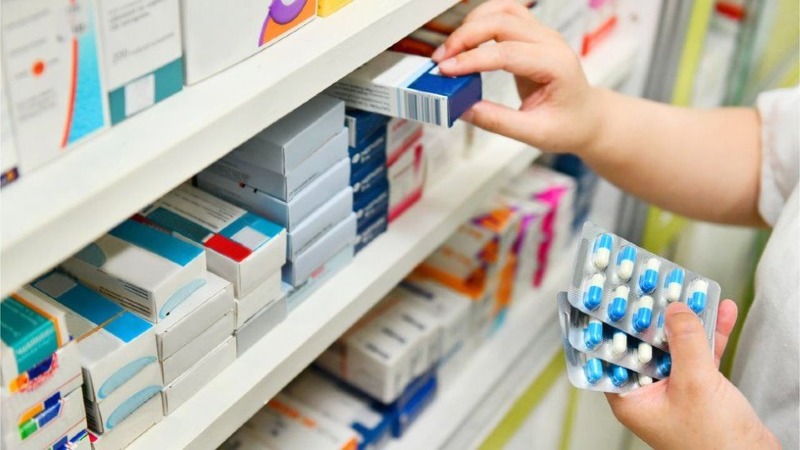 |
| According to preliminary statistics of the General Department of Customs, pharmaceutical import turnover in June 2024 reached 348,711,261 USD, down 1% compared to May 2024. |
To reduce the value of pharmaceutical imports and promote domestic production development, according to the representative of the Ministry of Health , Vietnam is focusing on improving the capacity to research and apply new drug production technology, promoting the development of clinical pharmacy, strengthening supervision of safe and rational drug use... aiming to become a new center of science and medical innovation in the region.
Specifically, the National Strategy for the Development of the Vietnamese Pharmaceutical Industry to 2023 and Vision to 2045 is focusing on improving research capacity and applying available technology to produce generic drugs and drugs with new and modern dosage forms, aiming to become a center for manufacturing and receiving technology transfer of generic drugs in the ASEAN region.
According to the Strategy, Vietnam strives to develop the domestic pharmaceutical industry to level 4 - the highest level, according to the classification of the World Health Organization.
By 2030, 100% of drugs will be proactively and promptly supplied for disease prevention and treatment needs; ensuring drug security, meeting national defense and security requirements, disease prevention and control, overcoming the consequences of natural disasters, catastrophes, public health incidents and other urgent drug needs.
Domestically produced drugs strive to meet about 80% of usage demand and 70% of market value; continue to strive to achieve the goal of producing 20% of raw material demand for domestic drug production...
Dr. Ta Manh Hung, Deputy Director of the Department of Drug Administration (Ministry of Health) said that previously the average annual drug expenditure per capita of a Vietnamese person was less than 5 USD, but now it has increased to 70 USD/person/year and the pharmaceutical industry has basically met the domestic drug demand.
In particular, Vietnam is considered one of the countries with the lowest rate of counterfeit drugs in the region. Substandard drugs in recent years have been maintained at a low level of less than 2% of the total samples taken on the market. While in the 1990s, the rate of counterfeit drugs on the market accounted for more than 10%.
Regarding production, Vietnam has developed a large number of pharmaceutical enterprises. However, domestically produced drugs are not yet highly competitive.
More than 200 enterprises mainly produce generic drugs. There are more than 800 pharmaceutical substances circulating in the domestic market, but the number of pharmaceutical substances produced by domestic enterprises is less than 50%.
"The pharmaceutical industry still has some unachieved goals. Nearly 90% of raw materials for drug production are imported. The rate of drugs assessed as bioequivalent is low, only about 10%," Mr. Ta Manh Hung analyzed.
Therefore, one of the goals for the pharmaceutical industry development in the coming time is to partially shift from the production of generic drugs to innovative drugs.
Or the Ministry of Health's submission of a draft law amending and supplementing a number of articles of the Pharmacy Law with a number of regulations to attract investment and further promote research and development of pharmaceutical ingredient production is also expected to promote the development of domestic pharmaceutical production.
Mr. Nguyen Thanh Lam, Deputy Director of the Department of Drug Administration (Ministry of Health), said that the Draft Law on amending and supplementing a number of articles of the Law on Pharmacy has added a number of provisions to attract investment and further promote research and development in the production of pharmaceutical ingredients; research and technology transfer for the production of high-tech drugs, biotech drugs, and special-treatment drugs.
Specifically, the Draft Law supplements regulations on special investment support according to the provisions of law for research activities, technology transfer, investment in the production of pharmaceutical substances, new drugs, original branded drugs, specialized drugs, drugs applying high technology in the production of vaccines, biological products, rare drugs, drugs for preventing and combating social diseases, herbal drugs and traditional drugs produced from Vietnamese medicinal materials with national brands.
In addition, the Draft specifies investment incentives for the production of generic drugs, pharmaceutical ingredients such as excipients and capsule shells; packaging in direct contact with drugs; construction of biological testing facilities, assessment of bioavailability and bioequivalence of drugs; and facilities for clinical trials of drugs.
At the same time, increase the preferential corporate income tax rate, increase the deduction rate and usage period of the Science and Technology Development Fund, and import tax on pharmaceutical ingredients that Vietnam cannot produce.
In addition, preferential output policies (drug purchase, payment by health insurance, price maintenance and price reduction according to the roadmap...) for newly researched drugs and generic drugs aim to encourage the transfer of technology to produce generic drugs in Vietnam, increasing supply to meet people's drug needs.
Also according to the representative of the Drug Administration Department, the Draft creates conditions to simplify the dossier for extending, changing, and supplementing the registration certificate for circulation of drugs and pharmaceutical ingredients; stipulates cases of extending, changing, and supplementing the registration certificate for circulation without having to go through the Advisory Council for granting the registration certificate for circulation of drugs or without having to wait for the approval of the Ministry of Health to simplify administrative procedures;
Reduce the time to process application for changes and additions, only need to announce from 3 months to 15 working days; reduce the time limit for granting circulation registration from 12 months to 9 months in case of recognition and reference to speed up the licensing process, ensuring people's early access to drugs.
Allow the facility to continue using the circulation registration certificate after it has expired and has submitted an application for renewal according to regulations until it is renewed or has a document from the Ministry of Health to ensure the continuous circulation of drugs and pharmaceutical ingredients, avoiding disruption of market supply.
The validity of the circulation registration certificate shall not be extended for drugs and pharmaceutical ingredients that have been granted a circulation registration certificate but have not been circulated on the market within a period of 5 years from the date of issuance, except for rare drugs, drugs for the treatment of rare diseases or drugs with no more than 3 circulation registration certificates of the same active ingredient, content and dosage form that are still valid.
This is to limit the situation of submitting documents not based on practical needs, reduce the burden of handling documents of the management agency as well as control the quantity of drugs and pharmaceutical ingredients actually circulating and distributed on the market, thereby having a clear view of drug supply capacity, supporting planning and forecasting work.
The draft also decentralizes the authority to recall drugs to the Department of Health in case of mandatory recall of drugs that do not meet quality standards at level 2 or level 3 detected in the area, in order to promptly handle and recall drugs that violate quality in the management area, ensuring safe and effective use of drugs.
Abolish the procedure for confirming drug information content and the requirement for confirming drug information and advertising content to implement the plan to reduce and simplify administrative procedures approved in Decision No. 1661/QD-TTg dated October 4, 2021 of the Prime Minister on approving the plan to reduce and simplify regulations related to business activities under the management scope of the Ministry of Health.
With the above-mentioned drastic reduction of administrative procedures, according to Mr. Nguyen Thanh Lam, it will fundamentally resolve the existing problems and shortcomings in state management of pharmaceuticals, helping the pharmaceutical industry continue to develop strongly, ensuring timely supply of quality, safe, effective and reasonably priced drugs for the people.
Source: https://baodautu.vn/nhap-khau-duoc-pham-cua-viet-nam-tang-hon-24-d219706.html


![[Photo] General Secretary To Lam visits exhibition of achievements in private economic development](https://vphoto.vietnam.vn/thumb/1200x675/vietnam/resource/IMAGE/2025/5/18/1809dc545f214a86911fe2d2d0fde2e8)



![[Photo] National conference to disseminate and implement Resolution No. 66-NQ/TW and Resolution No. 68-NQ/TW of the Politburo](https://vphoto.vietnam.vn/thumb/1200x675/vietnam/resource/IMAGE/2025/5/18/adf666b9303a4213998b395b05234b6a)
![[Photo] More than 17,000 candidates participate in the 2025 SPT Competency Assessment Test of Hanoi National University of Education](https://vphoto.vietnam.vn/thumb/1200x675/vietnam/resource/IMAGE/2025/5/17/e538d9a1636c407cbb211b314e6303fd)
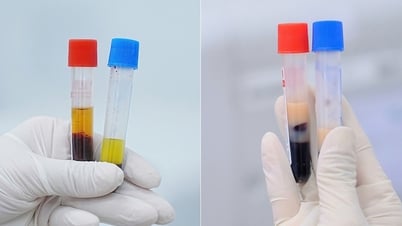



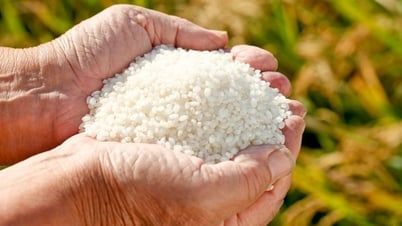
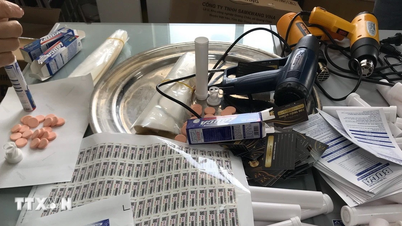

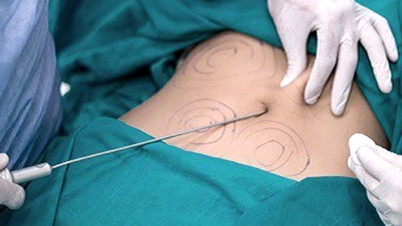

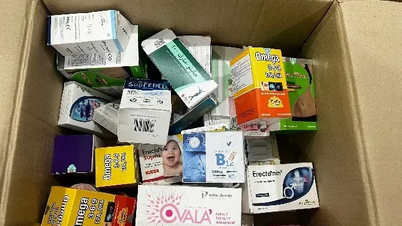











![[Photo] Prime Minister Pham Minh Chinh chairs meeting on science and technology development](https://vphoto.vietnam.vn/thumb/1200x675/vietnam/resource/IMAGE/2025/5/17/ae80dd74c384439789b12013c738a045)








































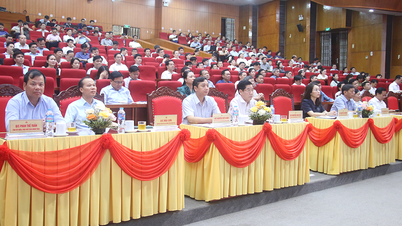




















Comment (0)